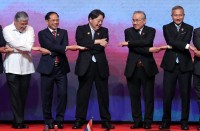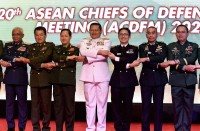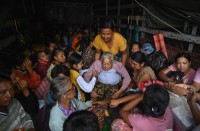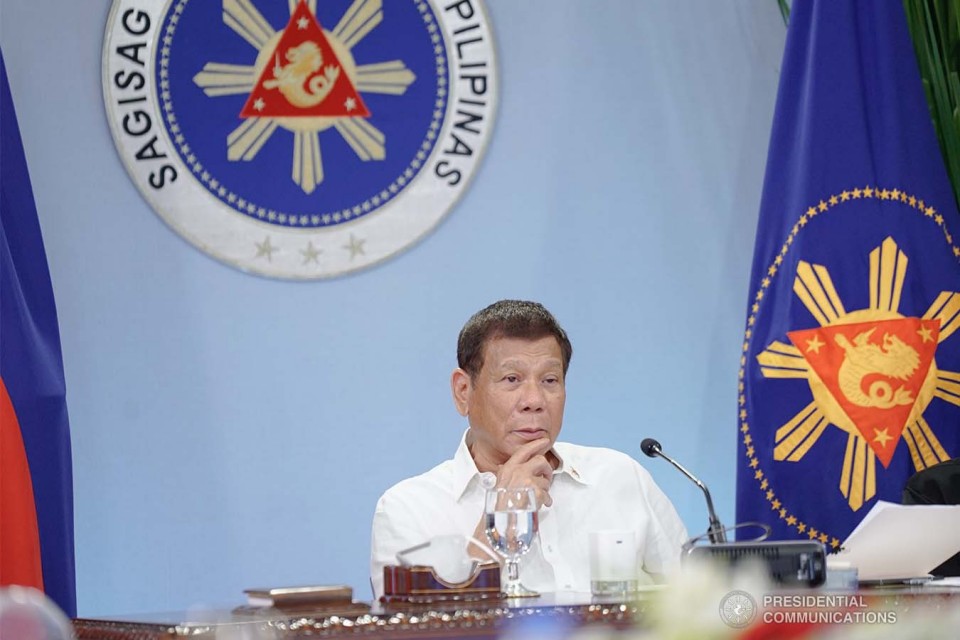
(Eagle News) – President Rodrigo Duterte said he is allowing the private sector to import vaccines against COVID-19 to protect their employees or members of their work force.
In his Talk to the Nation on Monday night, March 29, President Duterte said that he is directing his officials, particularly vaccine czar Secretary Carlito Galvez Jr., to immediately work on this so that private sector can import the COVID-19 vaccines that they need.
“We are allowing the private sector immediately to open the buying of anti-COVID-19 vaccines, maski saan din tayo makakuha,” he said.
“Because ang ating gobyerno eh iyon lang rin ang ibinigay sa atin, limitado,” the President said of the more than 2.5 million vaccine supplies delivered so far to the country.
Before this directive, the private sector could only get vaccines by negotiation through a tripartite agreement with the Philippine government.
-Problems in vaccine supplies as developed nations corner vaccines-
But Duterte said that the Philippine government is currently having difficulties getting the vaccines from the developed countries which are producing these.
While he could not mention which particular countries these are because of certain prohibitions, Duterte said that the situation was serious.
“Something has gone wrong. In most of the countries, they are — they shanghaied — iyong shanghaied ‘yong parang kinuha na nila na sa kanilang gobyerno at ewan ko there’s a ruckus now somewhere in… We are not allowed to mention the name of the countries but may — there’s something… There’s a ruckus going on and the fight for COVID possession is ongoing. It’s a very serious one,” he said.
The vaccines that the country has right now are 2 million Sinovac doses from China, and 525,600 AstraZeneca doses from the World Health Organization (WHO) COVAX Facility.
He said that the next delivery should be 2 million doses more, but he said there is still no assurance that it would come on the date that it was promised.
“Ang sunod na delivery natin is 2 million pero wala pang siguro ‘yan. Dito sa mga countries na ito na sinasabi ko nag-aagawan sila. I cannot name the countries because I was warned not to mention the names. Nag-aagawan sila ngayon at ang sabi ko hinold (hold) ang ano, hinold. Now, dapat sabihin ‘yan kasi para malaman rin natin na how unfair it is really, especially if we are on the side of the poor na ‘yong ma-hold ‘yong bakuna. So wala man tayong magawa,” he said.
-Duterte to Galvez: Sign needed documents to allow private sector importation-
He said that he has already directed vaccine czar Secretary Carlito Galvez Jr., to sign any and all documents that would allow the private sector to import at will.
“Ang aking decision is I have ordered Secretary Galvez to sign any and all documents that would allow the private sector to import at will. Maski magkano o ilan ang gusto nilang ipasok okay sa akin. Tayong gobyerno, ito lang ang nakuha natin, ito lang rin ang ibinigay,” Duterte said.
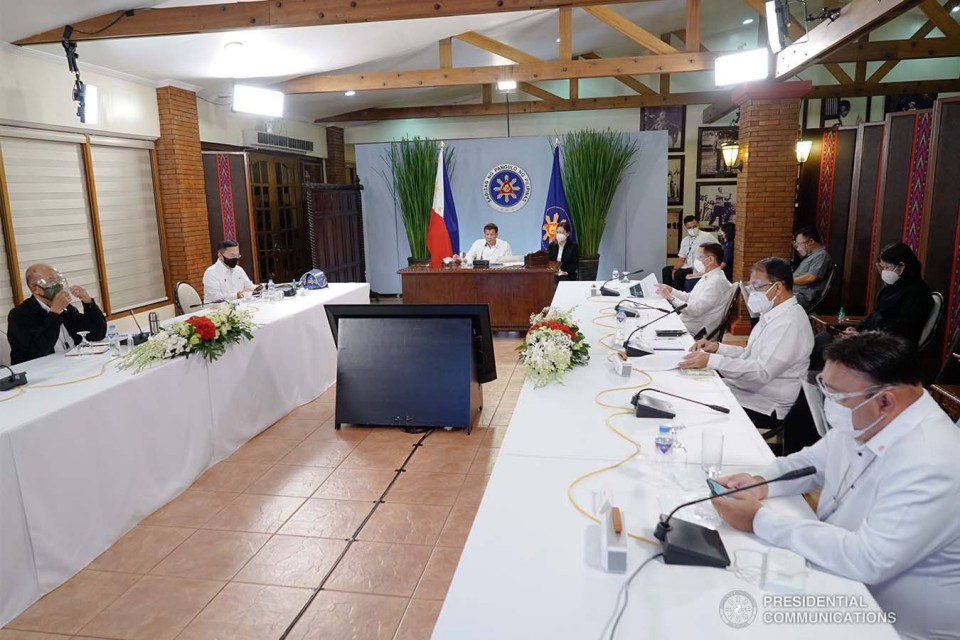
He said that he understood why the private sector wants to buy vaccines This is to keep the economy going, and to protect their work force.
“Well, of course, hindi natin masabi na mas marami ang mabili ng private sector. But dito sa Pilipinas maraming mga negosyante na gustong bumili kasi ibigay nila sa kanilang mga trabahante. You know what is the reason? Do you know the reason why? So that the economy can be opened. Iyong mga factories nila walang trabahante because ito ngayon karaming restrictions sa mobility ng tao. There are so many restrictions and workers come from all places,” he said.
The President also said that the over 2.5 million AstraZeneca vaccines are just about enough for the country’s 1.7 million health workers. If one factors in the needed doses for health workers, the country needs 3.4 million vaccine doses in all.
“Let me give you this warning pati mag-prangkahan tayo. Itong dumating ngayon na 1.2 million para lang ito, tamang-tama lang ito sa mga frontliners, sa mga health workers, at ‘yong lahat na may koneksyon doon sa trabaho sa — in fighting COVID,” he said.
-Health workers, other frontliners qualified to get jabs-
The Palace and the Department of Health also qualified health workers that would be considered part of the priority list. These are the medical frontliners only. Those who are in the medical profession but are not practicing this, including those who are engaging in business instead of working
in the medical field, are not considered medical frontliners who are qualified to get vaccines.
Duterte asked health secretary Francisco Duque III this during his Talk to the Nation on Monday night.
“They will not be considered as healthcare workers for the simple reason, sir, na ‘yong risk exposure nila halos wala compared to the healthcare workers in the hospitals both local and national, both public and private po,” Duque said.
“They have to be considered as part of the — the general population and must follow the pecking order in the prioritization, sir,” he said.
Duque also explained that barangay health workers and doctors and health professionals of the Armed Forces of the Philippines and the Philippine National Police are also considered in the A1 priority list who would get the vaccines.
“At mga iba pang mga facilities ang atin pong mga isolation quarantine facilities, ‘yon pong ating mga barangay health workers, ‘yong atin pong mga doktor sa mga AFP, PNP, ‘yan po talaga kasama po ‘yan sa A1 at sila po ‘yong binibigyan natin ng prayoridad,” he said.
Duque further explains that doctors who are not practicing do not have the same risk exposure as health care workers who are in working in health care facilities accepting or treating COVID-19 patients.
The IATF, however, has already allowed the simultaneous vaccination of the elderly population and those with comorbidities to give protection to other vulnerable sectors of the population.
(Eagle News Service)

